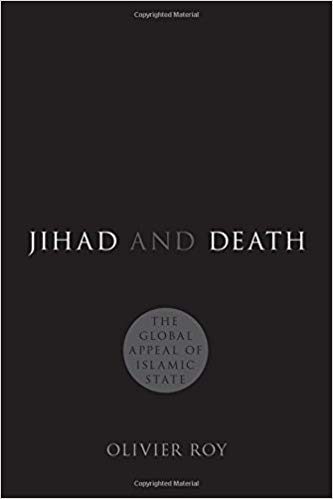
How has Islamic State been able to muster support far beyond its initial constituency in the Arab world and attract tens of thousands of foreign volunteers, including converts to Islam, and seemingly countless supporters online? In this compelling intervention into the debate about Islamic State's origins and future prospects, the renowned French political scientist, Olivier Roy, argues that while terrorism and jihadism are familiar phenomena, the group's deliberate pursuit of death has produced a new kind of radical violence. In other words, we're facing not a radicalization of Islam, but the Islamization of radicalism. Indeed, Roy argues, young European Muslims drawn to IS are attracted to the organization's violent means rather than utopian dreams of a caliphate. He places IS in the context of other radical millenialist groups such as China's Red Guards, Cambodia's Khmer Rouge, and Uganda's Lord's Resistance Army. In doing so, he shows that violence, not religious fundamentalism, is the central thread connecting young people who are drawn to radical groups. Jihad and Death is a concise dissection of the highly sophisticated narrative mobilized by IS: the myth of the caliphate recast into a modern story of heroism and nihilism.
Author

A professor at the European University Institute in Florence (Italy); he was previously a research director at the French National Center for Scientific Research (CNRS) and a lecturer for both the School for Advanced Studies in the Social Sciences (EHESS) and the Institut d'Études Politiques de Paris (IEP). From 1984 to 2008, he has acted as a consultant to the French Foreign Ministry. In 1988, Roy served as a United Nations Office for Coordinating Relief in Afghanistan (UNOCA) consultant. Beginning in August 1993, Roy served as special OSCE representative to Tajikistan until February 1994, at which time he was selected as head of the OSCE mission to Tajikistan, a position he held until October 1994. Roy received an "Agrégation" in Philosophy and a Master's in Persian language and civilization in 1972 from the French Institut National des Langues et Civilisations Orientales. In 1996, he received his PhD in Political Science from the IEP. Roy is the author of numerous books on subjects including Iran, Islam, Asian politics. These works include Globalized Islam: The search for a new ummah, Today's Turkey: A European State? and The Illusions of September 11. He also serves on the editorial board of the academic journal Central Asian Survey. His best-known book, L'Echec de l'Islam politique; The Failure of Political Islam. It is a standard text for students of political Islam. Roy wrote widely on the subject of the 2005 civil unrest in France saying they should not be seen as religiously inspired as some commentators said. His most recent work is Secularism Confronts Islam (Columbia, 2007). The book offers a perspective on the place of Islam in secular society and looks at the diverse experiences of Muslim immigrants in the West. Roy examines how Muslim intellectuals have made it possible for Muslims to live in a secularized world while maintaining the identity of a "true believer."